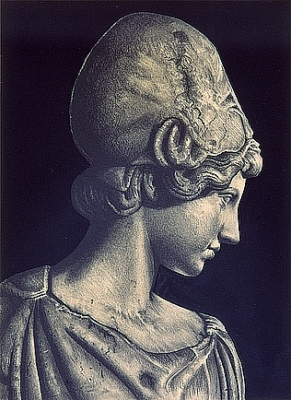The Heidelberg Academy of Sciences and Humanities was constituted in 1909 as the Baden Academy of Sciences and Humanities in the tradition of the Electoral Palatine Academy (internal link) founded by Elector Carl Theodor in 1763. The Heidelberg Academy has remained true to the founding idea of bringing together the state's outstanding scientists for interdisciplinary discussion and joint basic research. Like all eight academies of science supported by the federal states (external link), the Baden-Württemberg Academy is both a learned society and a non-university research institution. It supports research projects, organizes scientific conferences and public lecture series, and promotes young scientists.

Society of scholars rich in tradition
Scientists from the state of Baden-Württemberg who have distinguished themselves through outstanding scientific achievements are elected as full members of the Heidelberg Academy. In addition, the General Assembly may elect corresponding members from all over the world. Divided into two divisions, the Philosophical-Historical and the Mathematical-Scientific Class, almost all scientific disciplines are represented in the Academy. Due to the diversity of the research areas represented, the Academy facilitates interdisciplinary scientific exchange of ideas and cooperation beyond disciplines, faculties and universities like hardly any other institution.
Non-university research institution
The current focus of the academy's activities, which are designed for sustainability, is in the area of basic research in cultural and intellectual history. In a fast-moving age, science seeks insights and findings that outlast current trends and provide long-term perspectives for the present. In this way, science creates lasting values that preserve and renew intellectual foundations of life, experiences and ideas far beyond the present day. The Academy of Sciences provides the space in which many years of continuous observations and surveys are possible, data collections for editions of extensive text corpora and lexicons are compiled and made available to the general public. The Academy thus contributes to the preservation and development of the cultural heritage for the present and the future, and provides basic knowledge that can be used by other scholars in research and teaching, as well as by the public.
The range of the Academy's research projects (internal link) is broad. The scientific responsibility for the individual projects lies within commissions composed of academy members as well as external experts.
As a state academy, the Heidelberg Academy is primarily funded by the state of Baden-Württemberg. For numerous research projects, however, it also receives grants from the "Academies Program" (external link), which is jointly funded by the federal and state governments; according to the rules of the program, the federal government and the state in which a research unit is located each bear half of the project costs. In addition, the research centers raise third-party funds from priority programs of the Federal Ministry of Education and Research, the German Research Foundation and foundations.
New challenges
Since the founding of the first German Academy of Sciences more than 300 years ago, the role of academies in the science system has changed continuously. By taking on additional fields of activity, the academy of the state of Baden-Württemberg is facing new challenges.
- With selected meetings and the organization of lectures followed by discussions, the Heidelberg Academy intensifies the dialogue with the public.
- Increasingly, the Academy is contributing its research potential and the scientific expertise of its members to the public discussion of social problems.
- Since 2002, the "WIN-Kolleg" (internal link) has been funding interdisciplinary research on current topics that is designed and carried out by young scientists working as a team. The total funding amounts to approximately one million euros per year.
- With the "WIN Conferences" (formerly Academy Conferences) (internal link), the Academy gives young researchers the opportunity to organize an interdisciplinary conference on their own responsibility. While the Academy finances the conference and provides the infrastructure, the young researchers are free to choose the conference topic as well as the scientific planning.

